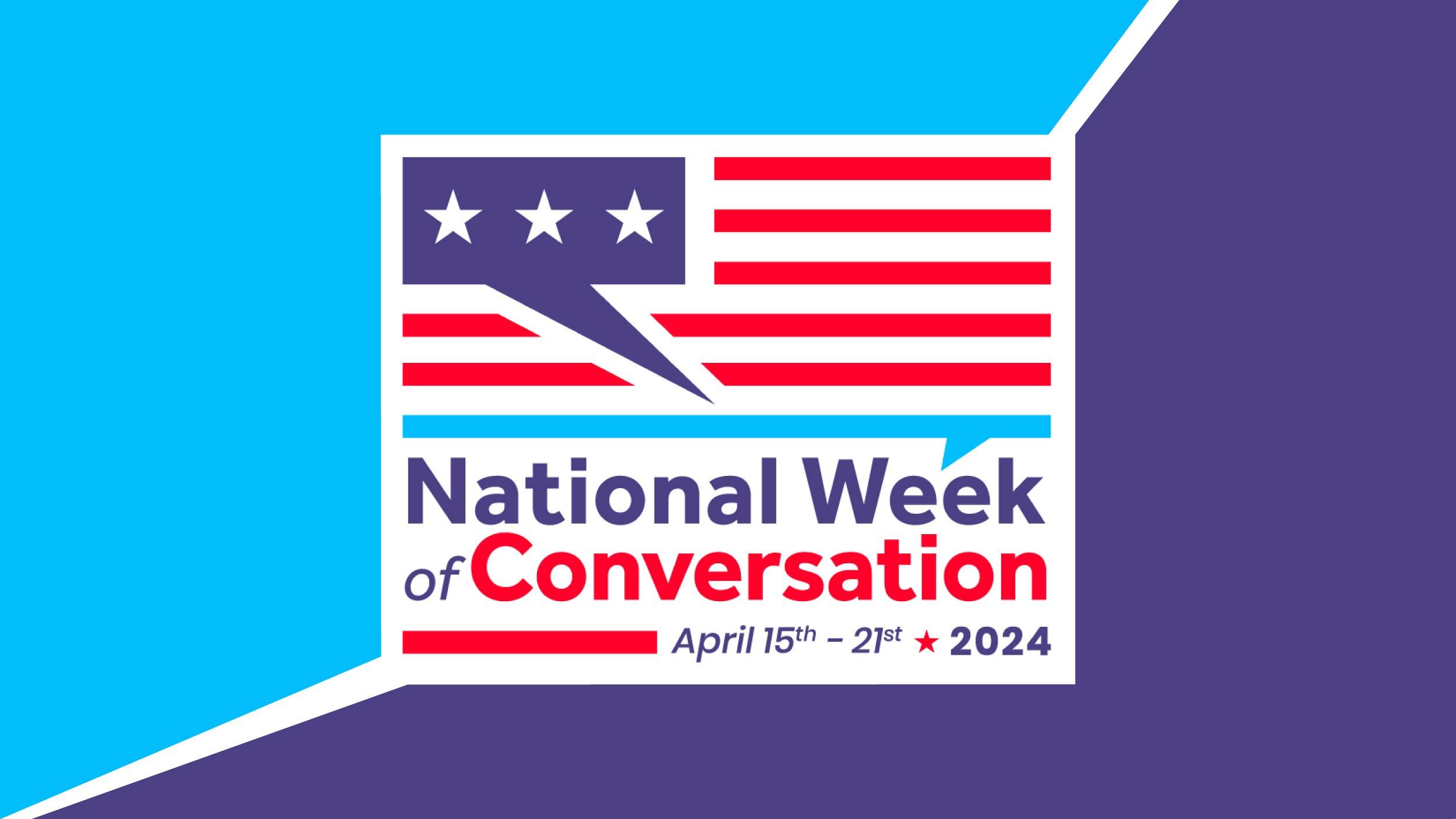Mississippi Today
Big changes could be coming to state financial aid. Who are the winners and losers?

Big changes could be coming to state financial aid. Who are the winners and losers?
House lawmakers last week passed a bill that would dramatically revamp how Mississippi spends taxpayer dollars on college financial aid.
The vote on House Bill 711, sponsored by Rep. Donnie Scoggin, R-Ellisville, marks the furthest a bill to change state financial aid has gotten in the legislative process since talks of redesigning the programs began in 2018.
Supporters of the bill, including the Office of Student Financial Aid, say this effort is succeeding where prior ones failed because it was created by a coalition of powerful officials who, behind closed doors, were able to reach a consensus. What that looks like is, overall, less money for college for low-income students and an increased emphasis on workforce development.
Critics of the bill have questioned whether that trade-off is worth the impact it'll have on low-income students. In committee meetings and on the House floor, lawmakers so far have focused on how this bill will harm the bottom line of Mississippi's five regional and historically Black universities.
But these institutions might actually gain money under the proposal, according to an OSFA analysis. Instead, it's low-income students at the state's three top-tier research institutions who stand to lose the most dollars under the proposal.
The bill will make big changes to two of Mississippi's three state financial aid programs: The Mississippi Resident Tuition Assistance Grant, or MTAG, and the Higher Education Legislative Plan for Needy Students, known as the HELP grant.
The Mississippi Eminent Scholars Grant, unlike the other programs, does not consider family income. It's based solely on ACT scores and GPA and is the state's most racially inequitable program. Under the proposed bill, it would remain untouched.
Mississippi's student financial aid programs are not stackable. This means students can only receive one grant at time, whichever one awards them the most money. For example, a student who gets a 30 on the ACT but comes from a family that makes more than $75,000 a year likely qualifies for both MTAG and MESG. But they would only receive MESG, because the grant is higher.
Currently, MTAG awards $500 per year for freshmen and sophomores and $1,000 per year for juniors and seniors. While it is intended to be a broad-based grant — the minimum ACT score required to get it is a 15, lower than the state's average — it has a significant limitation. Low-income college students who are eligible for the full federal Pell Grant are excluded from receiving this award. This means that most MTAG recipients in Mississippi come from families that, on paper, can already afford to pay for college.
The new MTAG, rebranded “MTAG Works,” would broaden eligibility to include full-Pell-eligible students and part-time students. It will also come with a new income cap. Students from families who make over the median family income, ($74,888 in 2022 for a four-person family, according to the federal government), would no longer be eligible.
By expanding to include part-time students, supporters of the bill hope the new MTAG will be easier for adult students, who tend to go to college part-time while working full-time, to get. MTAG is the only undergraduate state aid program in Mississippi that does not have to be applied for within two years of college graduation. But recipients must be enrolled full-time, a requirement that excludes most adult students.
The grant will also be increased. The award amounts under the bill would be upped to $1,000 for freshmen and sophomores and to $2,000 for juniors and seniors. Students who major in certain subjects deemed “high-value pathways” by the state's workforce development office will receive an additional $500. It is unclear what majors will be considered “high-value pathways” or how the workforce development office will determine that.
These changes would double the number of students who could get MTAG, according to HCM Strategists, a consulting firm that was hired by a Mississippi-based nonprofit to help write the proposal that became Scoggin's bill.
All this would entail Mississippi spending an extra $21 million in taxpayer dollars on state financial aid each year.
These changes are complicated and the final award would vary based on test scores, family income, and a student's year in school. Here's a sketch of how they might play out for certain kinds of students:
A student from a family that makes more than $39,500 attending Alcorn State University with an ACT of 19:
Cost of tuition for four years: $31,476
Current total state aid: $3,000
New total state award: $6,000
A student with the same family income, attending the same school and with the same ACT score who majors in a “high-value pathway”:
Cost of tuition for four years: $31,476
Current total state aid: $3,000
New total state award: $8,000
A student whose family makes $250,000 a year attending Pearl River Community College full-time with an ACT of 27:
Cost of tuition for two years: $6,500
Current total state aid: $3,000
New total state award: $0
A part-time adult student attending Coahoma Community College:
Cost of tuition for two years: $6,400 or less
Current total state aid: $0
New total state award: $2,000
Though some studies have shown that MTAG is one of the state's most inefficient college financial aid programs — one lawmaker remarked earlier this session that it can go to any student who “breathes air” — the Office of Student Financial Aid believes these changes will make the grant more effective.
Education policy experts say the higher award amount might not be enough to help students afford college considering the increasing cost of college tuition in Mississippi. They also say the $500 “bonus” is too small an amount to have any effect on student behavior.
MTAG recipients at four-year universities will gain far less money than HELP recipients stand to lose. Where some MTAG recipients who don't major in a high-value pathway will gain $3,000 in college financial aid over four years, HELP recipients will lose an estimated $9,100 based on the average tuition at the four-year universities, according to a Mississippi Today analysis.
HELP, the only financial aid program geared to low-income students in Mississippi, currently pays the full cost of tuition for all four years of college, no matter what institution a student attends. It is one of the state's most effective programs, according to studies commissioned by OSFA. HELP recipients — students from families that make less than $39,500 a year – take more credit hours, have higher GPAs, and are more likely to graduate on time than their low-income peers who don't receive other state financial aid.
The grant is also the state's most racially equitable. By and large, most HELP recipients — who have higher than average ACT scores based on HELP's eligibility requirement of a 20 or higher — chose to go to four-year universities.
The bill seeks to re-route where these students attend college by converting the HELP grant into what's commonly called a “2+2” program. It will reduce the award for freshmen and sophomores to the average cost of tuition at community colleges (roughly $3,300), but juniors and seniors will continue to receive the average cost of tuition at the four-year universities (roughly $8,900).
This change means that future HELP recipients will lose thousands of dollars in financial aid for college.
Here's what that looks like for HELP recipients over the course of four years:
A low-income student who goes to Mississippi State University for all four years with an ACT score of 28:
Cost of tuition for four years: $36,992
Current total state aid: $36,992 (estimated based on 22-23 tuition)
New total state award: $24,400
A low-income student who goes to Mississippi Valley State University for all four years with an ACT score of 34:
Cost of tuition for four years: $29,096
Current total state aid: $29,096 (estimated based on 22-23 tuition)
New total state award: $24,400
A low-income student who goes to Mississippi Gulf Coast Community College with an ACT score of 20:
Cost of full-time tuition for two years: $6,600
Current total state aid: $6,600 (estimated based on 22-23 tuition)
New total state award: $6,600
The extent to which changes to the HELP grant will affect recipients at different universities in Mississippi will depend on a variety of factors, like the cost of tuition at the university they're attending and whether they qualify for private institutional aid or scholarships.
This article first appeared on Mississippi Today and is republished here under a Creative Commons license.
Mississippi Today
Experts analyze House, Senate Medicaid expansion proposals, offer compromise plan
As Mississippi lawmakers look for compromise between widely differing House and Senate Mississippi Medicaid expansion plans, experts with a health research group have projected the costs, savings and efficacy of the plans and offered a third, potential compromise plan.
The analysis shows that under each plan, the state would see net annual savings – ranging from tens of millions to hundreds of millions of dollars – by expanding the state-federal Medicaid program to cover working, poor and uninsured Mississippians. The plans, the study says, also vary widely in how many Mississippians would be covered – from around 50,000 to nearly 200,000.
The study was commissioned by the Center for Mississippi Health Policy and conducted by the Hilltop Institute at the University of Maryland, Baltimore County. Hilltop has studied Medicaid expansion nationwide and recently testified before the Mississippi House Medicaid Committee.
“We wanted to get some updated numbers based on publicly available data,” said Morgan Henderson, director of analytics and research for Hilltop. “We really want to make sure folks having these discussions have data points they need.”
The study takes the House and Senate plans at face value, even though both contain elements not likely to be approved by the federal Centers for Medicare and Medicaid Services. The Senate plan, for instance, includes a stringent work requirement for coverage that, besides potentially costing millions in administrative fees, isn't likely to be approved by CMS.
Both the House and Senate plans contain another potential poison pill that could prevent expansion from being implemented. They have 12-month moratoriums on people who qualify for the expanded Medicaid coverage from dropping private coverage and applying for Medicaid. CMS is highly unlikely to approve this, and such moratoriums would probably not meet constitutional muster in a court.
The options
Mississippi Senate plan
One striking difference between the Senate plan and the House and compromise plans is the Senate one would turn down about $1 billion a year in federal money to cover more expansion costs. It also would forego nearly $700 million over the first two years in enhanced federal funding that some refer to as a “signing bonus” for states that fully expand Medicaid per the federal Affordable Care Act.
The Senate plan would provide coverage to people making up to 100% of the federal poverty level – about $15,000 a year for an individual. Hilltop estimates this plan would cover about 54,000 people, although Senate leaders said they estimate about 40,000 people would sign up.
The Senate plan would require participants to work 120 hours a month or be enrolled as a full-time student or in a workforce training program. It would exempt some from this requirement, including parents of children under 6, people mentally or physically unable to work or those who are caregivers to disabled family members.
Cost
The state's upfront cost of the Senate plan would be paid by a 3% tax on Medicaid managed care providers.
Hilltop estimates the Senate plan would cost the state a little over $114 million per year, including $15 million in administrative costs. But when these costs are offset by the tax on providers, the economic stimulus of expansion and other offsets or revenue, Hilltop estimates a net savings to the state of $43.4 million a year.
Mississippi House plan
The House plan would provide Medicaid coverage for people making up to 138% of federal poverty level, a little more than $20,00 a year for an individual. Hilltop estimates this would cover about 134,000 Mississippians (again, factoring in the “moratorium” on leaving private coverage).
The House plan calls for work requirements – 20 hours a week or enrollment as a student or in workforce development – but would still go into effect without the requirements if CMS fails to approve them.
Under this plan, Mississippi would draw down about $1 billion a year in increased federal Medicaid payments, and over the first two years, another nearly $700 million in enhanced federal payments.
Cost
The state share of upfront costs for the House plan would be covered by a 4% tax on Medicaid managed care providers.
Hilltop estimates the House plan, with no work requirement approved, would cost a little over $115 million, including $8 million in administrative costs. But when these are offset by the tax on providers, economic stimulus and other offsets or revenue, Hilltop estimates an annual savings for the state of more than $404 million a year for the first two years, then $79.5 million a year for the third year and beyond.
House Speaker Jason White and others have noted that the enhanced federal payments to the state totaling nearly $700 million over the first two years would cover all state costs for the first four years of the House expansion plan. White also noted that the House plan, even if a work requirement is not approved, would require the managed care organizations to track employment and other data from those covered.
Compromise ‘hybrid plan‘
Hilltop's “Mississippi MarketPlus Hybrid Plan” would offer expanded Medicaid coverage through the state's managed care program for those making under 100% of the federal poverty level. For those making 100% to 138% (up to $20,000 for an individual) of poverty level, the plan would use federal money to provide assistance for them to buy private insurance plans through Mississippi's marketplace exchange.
Hilltop estimates this plan would provide coverage for 197,000 Mississippians.
The plan would require managed care companies to provide employment support and require mandatory referral to workforce training. It would also require those covered to pay marketplace insurance co-pays, but would not include a work requirement or moratorium on people leaving private insurance.
Like the House plan, this plan is expected to qualify the state for enhanced federal Medicaid payments and the two-year “signing bonus” of nearly $700 million.
Cost
The plan, like the Senate's, includes a 3% tax on Medicaid managed care providers to help cover state costs.
Hilltop estimates the upfront cost to the state for this plan would be a little more than $186 million, including $12 million in administrative costs (including work support). But these would be offset by the tax on providers, economic stimulus from expansion and other offsets or revenue. Hilltop estimates a net savings to the state for this plan of more than $356 million a year for the first two years, then $31.3 million a year in savings for years three and up.
The Hilltop study also noted this plan would allow the state to receive a 90% federal match for services currently funded only with state dollars, including hospital services for incarcerated people and some behavioral health services.

Other findings
Hilltop's report says that Medicaid work requirements – when they were previously allowed by the feds – have not shown to increase workforce participation. It said, “Moreover, the Arkansas experience demonstrates that the administrative burden in reporting work status can lead to Medicaid coverage loss for the working poor – thus hurting the exact individuals designed to be covered under work requirements.”
A Georgia program similar to the Mississippi Senate's plan in several regards, has shown that stringent work requirements result in low enrollment and high administrative costs, the Hilltop study notes. As of recently, the Georgia program had enrolled only a few thousand people and over 90% of its costs to-date have been administrative costs and consulting fees. Georgia is still battling the federal government in court over its work requirements.
The Hilltop study found the Senate's plan “contains high budget risk” to the state. Since the plan eschews extra federal funding available for expansion, “if enrollment exceeds estimates, there would be proportionally greater budget overruns in the Senate version than the alternative plans.” It noted that to protect state coffers, language could be inserted to the House or hybrid plan that rescinds the expansion should the enhanced federal match drop.
This article first appeared on Mississippi Today and is republished here under a Creative Commons license.
Mississippi Today
Meet the six people negotiating a final Medicaid expansion bill at the Capitol
The House and Senate can now begin negotiating ways to enact a law to expand Medicaid coverage to poor Mississippians after legislative leaders named the six people to hammer out a final plan.
House Speaker Jason White, R-West, recently appointed Republican Reps. Missy McGee of Hattiesburg, Sam Creekmore IV of New Albany and Joey Hood of Ackerman to be the House negotiators.
Republican Lt. Gov. Delbert Hosemann last week named Republican Sens. Kevin Blackwell of Southaven, Nicole Boyd of Oxford and Brice Wiggins of Pascagoula to represent the Senate in the deliberations.
The six conferees are all white Republicans, despite Senate Minority Leader Derrick Simmons, a Democrat from Greenville, recently calling on Hosemann to appoint a Democrat as a conferee. Two of the six conferees are women, but no Black lawmaker will have a seat at the negotiating table.
The six members, called conferees, will attempt to forge an agreement over the different versions of the expansion plan that have passed the House and Senate.
The House's expansion plan aims to expand health care coverage to upwards of 200,000 Mississippians, and accept $1 billion a year in federal money to cover it, as most other states have done.
The Senate, on the other hand, wants a more restrictive program, to expand Medicaid to cover around 40,000 people, turn down the federal money, and require proof that recipients are working at least 30 hours a week.
White previously told Mississippi Today in an interview that he is willing to compromise on a plan that fully covers people up to 138% of the federal poverty level, but he does not intend to agree to a plan that forgoes the full 90% matching rate from the federal government.
“Look, at this point, if it makes sense, and when I say conservative, I mean from a dollars and cents standpoint,” White said of expansion. “I'm convinced, and health care professionals have convinced me, that this population, this is the way to cover these individuals.”
If the House and Senate conferees agree on a compromise, the final bill will go back before the two chambers for consideration. If lawmakers sign off on the plan, it will then go to Republican Gov. Tate Reeves who has privately threatened to veto any type of expansion bill.
Here are the three House negotiators and three Senate negotiations who will soon begin meeting on a final Medicaid expansion bill.
House conferees:
Rep. Missy McGee, R-Hattiesburg:
McGee is the chairwoman of the House Medicaid Committee and has been a champion of reforming the state's Medicaid laws to provide more services to current Medicaid recipients and expanding coverage to more people.
Earlier this year, she spearheaded legislation to allow pregnant women whose net family income is 194% or less of the federal poverty level to be presumed eligible for Medicaid and receive care before their Medicaid application is officially approved by the Mississippi Division of Medicaid.
Even before White appointed her to lead the Medicaid committee, she successfully shepherded legislation through the Capitol that extended benefits for pregnant people on Medicaid that increased their timeline for receiving benefits from 60 days for a full year.
Rep. Sam Creekmore IV, R-New Albany:
Creekmore is the chairman of the influential House Public Health Committee. While Creekmore's committee does not necessarily have jurisdiction over Medicaid policy, his stance on the issue holds enormous sway over House colleagues and the state's medical community.
The son of a physician in rural northeast Mississippi, Creekmore has also been an early voice calling for lawmakers to expand Medicaid under the Affordable Care Act. He's also advanced legislation to provide more mental health services to Mississippians.
Rep. Joey Hood, R- Ackerman:
Hood may be a somewhat unusual conferee because he is currently the chairman of the House Judiciary A Committee, a committee with jurisdiction over the state's civil code.
Hood, however, is a close ally of Speaker White's and previously led the House Medicaid Committee during the last four-year term. Hood somewhat became the face of Medicaid policy stagnation during the last term because he called relatively few committee meetings and let numerous expansion bills die at his hands.
Hood last year, though, did allow McGee's postpartum Medicaid bill to come up for a full vote on the House floor. Ironically, Hood will now have a hand in shaping the finalized Medicaid expansion bill that his House colleagues consider passing into law.
Senate Conferees:
Sen. Kevin Blackwell, R-Southaven:
Blackwell is the chairman of the Senate Medicaid Committee, who has advocated for a more strict Medicaid expansion plan. He has previously been opposed to Medicaid expansion, but has come around to adopting a hybrid model, similar to Arkansas' expansion plan.
Blackwell has advocated for strict work requirements for Medicaid expansion recipients and advocated for a plan that only extends Medicaid coverage for 99% of the federal poverty level.
The DeSoto County legislator has indicated the Senate may be unwilling to deviate from many of its hardline positions on expansion, so his voice during the conference process will be critical.
Sen. Nicole Boyd, R-Oxford:
Boyd is the vice chairman of the Senate Medicaid Committee. Though she's only in her second term as a lawmaker, she has quickly cemented herself as a legislator who can usher substantive policies through the Capitol and broker deals with the House.
She has previously led the debate on Medicaid reform bills in the Senate and could be crucial in navigating a potential impasse with House leadership over the ongoing Medicaid expansion legislation.
Sen. Brice Wiggins, R-Pascagoula:
Wiggins is the chairman of the Senate Judiciary A Committee, the committee that deals with the state's civil statutes. A member of the Public Health Committee, the Jackson County lawmaker has been supportive of postpartum Medicaid extension and presumptive eligibility.
During the debate over its expansion plan, Wiggins spoke out in favor of passing the Senate's expansion plan and has pushed back on Republican Gov. Tate Reeves' opposition to the legislation.
This article first appeared on Mississippi Today and is republished here under a Creative Commons license.
Mississippi Today
Constructive dialogue can be the bridge to understanding and empathy

“We need to talk.”
When uttered, these four words have the power to instill fear in the hearts of spouses, children, and employees alike. They aptly describe the situation we face as a nation today.
The problem? Toxic polarization – the way we demonize each other across differences. Most of us have few or no friends who have different political preferences. We think “other people in America” pose the biggest threat to our way of life. We are finding it more and more difficult to say what we believe without the conversation devolving into utter chaos. Unsurprisingly, we shut down. We don't talk. It's a problem we can all hear, loud and clear.
The good news is that most of us want to talk. Most of us believe it is crucial for everyday Americans to be involved in finding solutions to the problems facing their communities. In a time marked by deep-seated divisions along ideological, political, and social lines, the need for constructive dialogue has never been more pressing.
Since last August, 19 graduate students seeking a degree in Integrated Marketing Communications at the University of Mississippi have been planning and preparing for the seventh annual National Week of Conversation (NWoC). They are helping provide real opportunities for people across the country to build bridges of understanding and empathy. Each of them committed to the course because they understand that beneath our differences lie shared humanity and common aspirations. They've been learning and applying concepts from Collective Impact and Reflective Structured Dialogue and are both inspiring and encouraging to work with.
At its core, NWoC embodies the principles of empathy, respect, and openness – values that are essential for a thriving democracy. When people take the time to really listen to others, they learn. They learn that we really aren't that different, that we share many of the same values and aspirations, something reinforced by findings of several studies. They learn that others, like them, desire to make positive change in our communities. They learn, as Brene Brown has written, that “people are hard to hate close up.”
These students are being courageous enough to put aside their own agendas and listen to the experiences of others. They are finding that this desire to listen across our differences is shared by the majority of their peers. And they are standing up opportunities to work together despite forces working to tear us apart.
But don't take their word for it. Experience it yourself. Find an event to attend, here, and be with the nearly 80% of Americans who believe in creating more opportunities for people to talk across their differences. And who knows, maybe you'll learn its not as scary as it sounds after all.
Graham Bodie is Professor and Interim Chair of the Department of Media and Communication in the School of Journalism and New Media at the University of Mississippi. When asked what he does for a living he responds, “I teach people to listen.” More importantly, he has been able to work with a group of dedicated students for several years to plan and execute the National Week of Conversation, a yearly campaign launched by Listen First Project in 2018 that seeks to provide opportunities for people to #ListenFirst across their differences. This year, those students have put together an amazing set of promotional toolkits and events for the Better Together Film Festival that features film screenings across the country including Tupelo and Oxford. Several of them contributed to the writing of this piece.
Join the conversation.
Join us at Noon on Friday, April 18 for a lunch and learn session exploring tools to make us better listeners, and in turn, better equipped to engage in meaningful conversations across differences.
The session will be led by Dr. Graham Bodie, professor and Interim Chair of the Department of Media and Communication in the School of Journalism and New Media at the University of Mississippi.
This event is free and open to the public. Register to receive more information.
This article first appeared on Mississippi Today and is republished here under a Creative Commons license.
Did you miss our previous article…
https://www.biloxinewsevents.com/?p=349578
-
Mississippi News2 days ago
Mississippi will soon be bombarded with cicadas
-
Mississippi News6 days ago
Community rallies behind Starkville High basketball coach
-
Local News7 days ago
Mississippi Power ready to respond ahead of spring severe weather on Wednesday
-
SuperTalk FM6 days ago
Ex-cop arrested in connection to killing at Jackson apartment complex
-
SuperTalk FM1 day ago
4 tornadoes touched down in Mississippi during latest round of severe storms
-
SuperTalk FM2 days ago
2 Jones County correctional officers arrested in smuggling bust
-
Mississippi News6 days ago
One dead, one injured after severe storms hit Mississippi
-
Mississippi News4 days ago
Columbus schools may see needed upgrades with bond issue













































